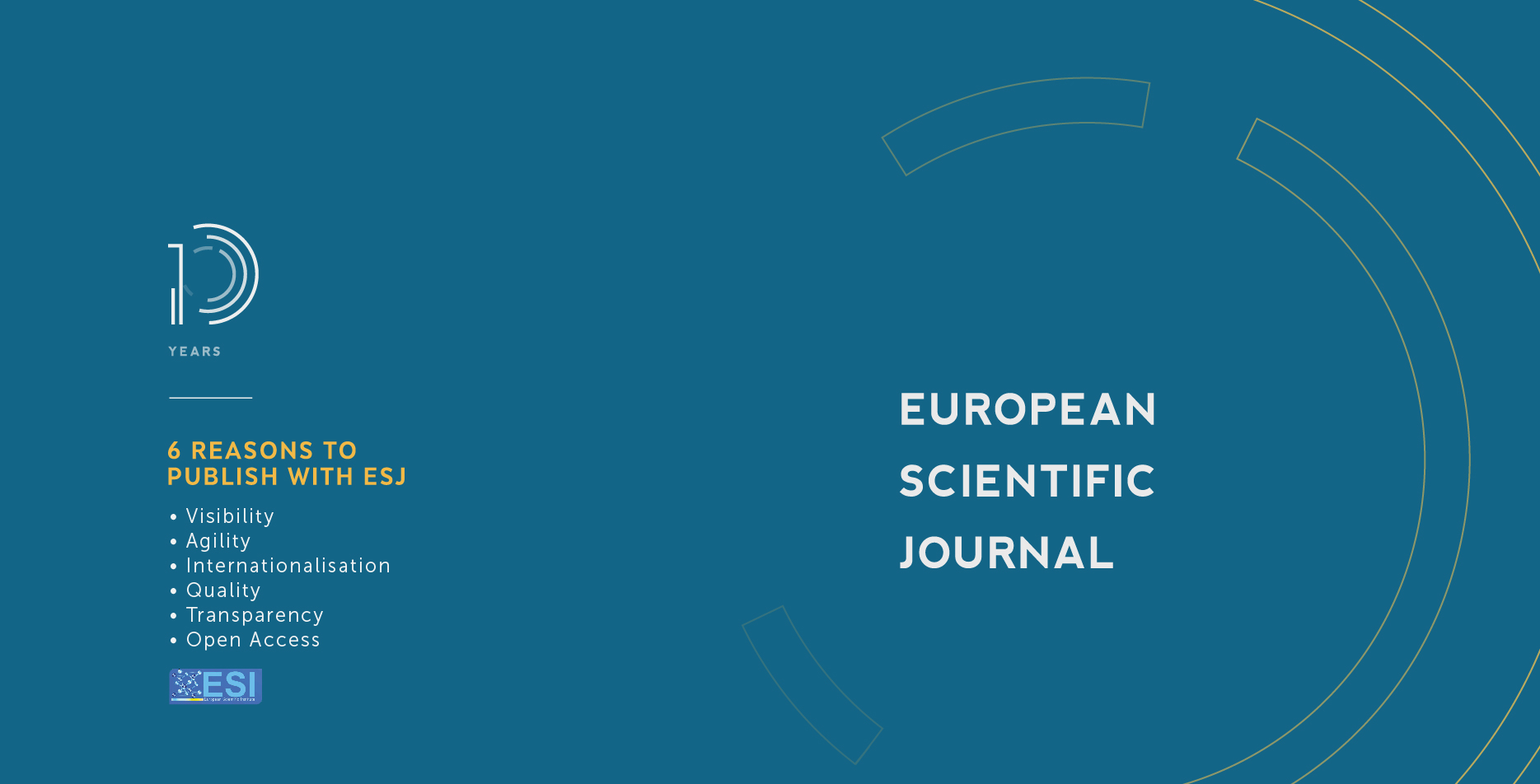Othering Europe: Ambivalence in Moroccan Discourse Towards Modernity under the Dogmatic Understanding of Islam and the Political Affiliation to the Monarchy
Abstract
This paper is a study of the reaction of the Moroccan intellectual elite against/towards European modernity in the nineteenth century. The primary focus is on the Moroccan failure to formulate and develop a positive and reasonable response to European expansionism and menace. This threat may seem military in its core as it was related to colonialism, yet the encounter was essentially cultural and the reaction of the Moroccan elite took its grounds from religious and cultural stands. This is simply because Europe was not only a colonizing Other, but also a cultural opponent with which Morocco had armed conflicts, long-standing rivalries, and even cultural dialogues. This paper develops an argument that the Moroccan intellectual elite exemplified via ambassadorial travel writers, the Makhzen’s envoys to Europe, failed to see Europe as a possible model or at least to open some horizons of cultural dialogue and encounter. Due to cultural reasons and historical circumstances, this intellectual elite rejected Europe and modernity. The present paper limits itself to the question of ambivalence shown by Moroccan ambassadorial travel writers in their narratives. It argues that their travel accounts were torn between the writers’ religious thinking and political affiliations. It postulates that ambassadorial travel writers showed ambivalence in their connection to the idea of modernity. Their narratives were governed by the dichotomy of admiration of the material progress of Europe and rejection of Europe as a possible cultural model.
Downloads
PlumX Statistics
References
2. Al-Fassi, Mohammed Taher. 1967. Al-Riḥla al-Ibrizia ila Diar al- Inglizia [The Golden Travel to the Land of England]. Ed. Mohammed al-Fassi. Fes, Mohamed V University Press.
3. Al-Ghassani, Mohammed. 2002. Rihlat al-Wazir fi Iftikak al-Assir [The Travel of the Vizir in Releasing the Captives]. Ed. Nouri al-Jarah. Abou Dhabi: Dar As-Souidi.
4. Al-Makkaoui, Ahmed. 2007. Al-Raḥalona al-Maghariba wa Owaspa [Moroccan Travellers and Europe]. Rabat: Jodour li Nashr.
5. Al-Meknassi, Mohammed ben Ottman. 1965. Al-Ikssir fi Fakaki al-Assir [The Elixir of Releasing the Captive]. Ed. Mohammed al-Fassi. Fes: University Mohamed V.
6. Al-Tahtawi, Rifa‘a Rafi‘. 2011. An Imam in Paris: Account of a Stay in France by an Egyptian Cleric (1826-1831). Ed & Trans. Daniel L. Newman. London: Saqi Books.
7. Al-Tunissi Khayr al-Din. 1967. The Surest Path: The Political treatise of a Nineteenth-century Muslim Statesman. Trans. L. C. Brown. Massachusetts: Cambridge University Press.
8. Derrida, Jacques. 1981. Dissemination. Trans. Barbara Johnson. London: The University of Chicago Press.
9. Eickelman Dale & Piscatori James, eds. 1990. Muslim travelers: Pilgrimage, Migration, and the Religious Imagination. Los Angeles: University of California Press.
10. El Mansour, Mohamed. 1989. Moroccan Perceptions of European Civilisation in the Nineteenth Century. Morocco and Europe. Ed. George Joffé. London: Centre of Near and Middle Eastern Studies.
11. El Moudden, Abderrahmane. 1990. The Ambivalence of Rihla: Community Integration and Self-Definition in Moroccan Travel Accounts. Muslim Travellers. Ed. Dale Eickelman & James Piscatori. California: University of California Press.
12. Heimer, Abdessalam. 2001. Al-Nokhba al-Maghribiya wa Ishkaliyat al-Taħdith [Moroccan Intellectual Elite and the Problematic of Modernisation]. Casablanca: al-Moltaqa.
13. ---. 2005. Al-Maghreb: al-Islamo wa al-Hadatha [Morocco: Islam and Modernity]. Casablanca: al-Najah al-Jadida Press.
14. Holy Koran. 2009. Trans. Muhammad Ghali. Dar Ibn Hazm: Cairo.
15. Idrissi, Ahmed Alami. 2013. Mutual Othering: Islam, Modernity and the Politics of Cross-cultural Encounters in Pre-Colonial Morocco and European Travel Writing. New York: State University of New York Press.
16. Jʿaidi, Idriss al-Slaoui. 2004. Itḥafo al-Akhyar bi Rara’ibi al-Akhbar [Enriching the Dearest with the Strangest Reports]. Ed. Izarab Maʿeninou. Abou Dhabi: Dar As-Souidi.
17. Lamroui, Idriss ben Driss. 1986. Toḥfat al-Malik al-‘Aziz fi Mamlakati Bariz [The treasure of the Dear king In the Kingdom of Paris]. Ed. Zaki Mubarak. Tanger: E. T. E. I Nord.
18. Laroui, Abdullah. 1998. Al- ʿArab wa al-Fikr al-Tarikhi [The Arabs and the Historical Thinking]. Casablanca: Centre Culturel Arabe.
19. ----. 2007. Mafhoum al-ʿAql [The Concept of Reason]. Casablanca: Centre Culturel Arabe.
20. ----. 2009. Les Origines sociales et culturelles du nationalisme marocain. Casablanca: Centre Culturel Arabe.
21. Miller, Susan, trans & ed. 1992. Disorienting Encounters: Travels of a Moroccan Scholar in France in 1845-1846: The Voyage of Mohammed As-Saffar. California: California University Press.
22. Salih, H. (2021). Allal Al-Fassi’s Utopia: Liberalism and Democracy within the Revivalist System of Thought. International Journal of Language and Literary Studies, 3(3), 202–215.
Copyright (c) 2021 Hamza Salih

This work is licensed under a Creative Commons Attribution-NonCommercial-NoDerivatives 4.0 International License.








